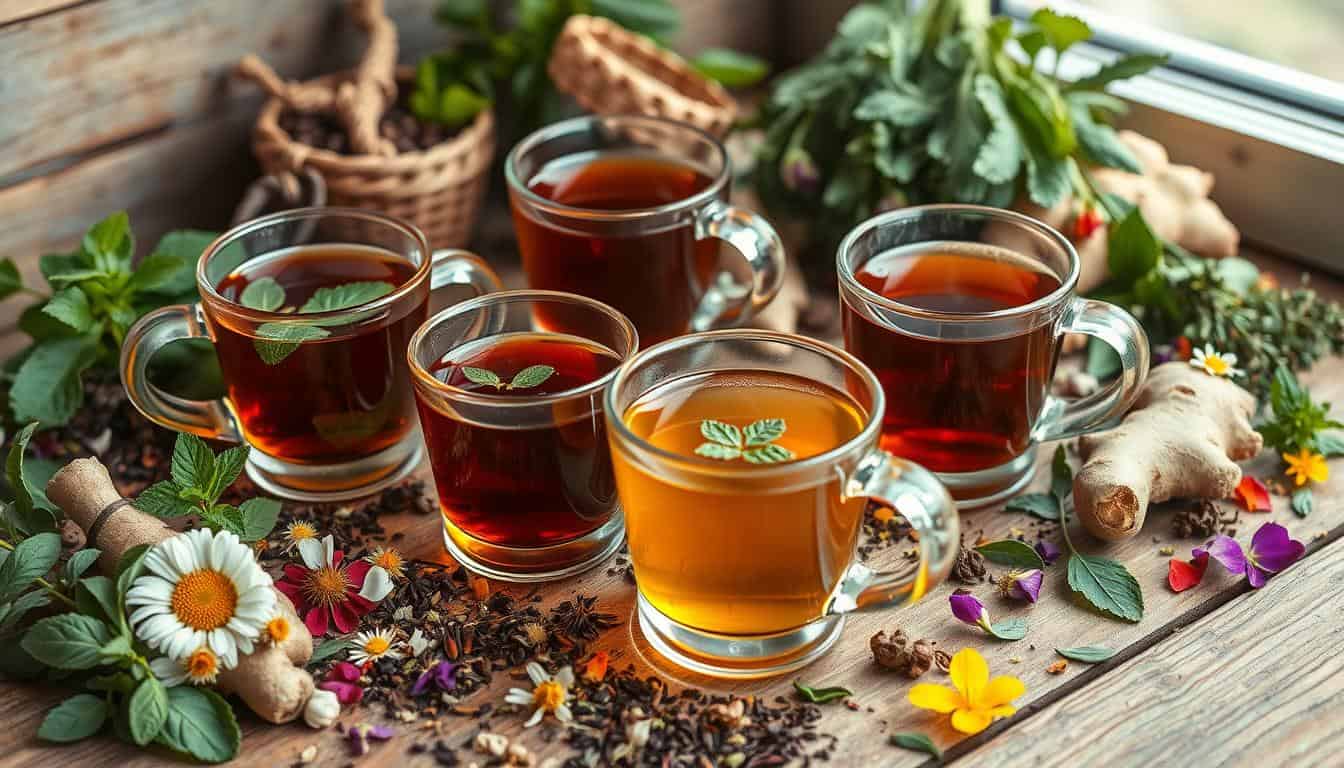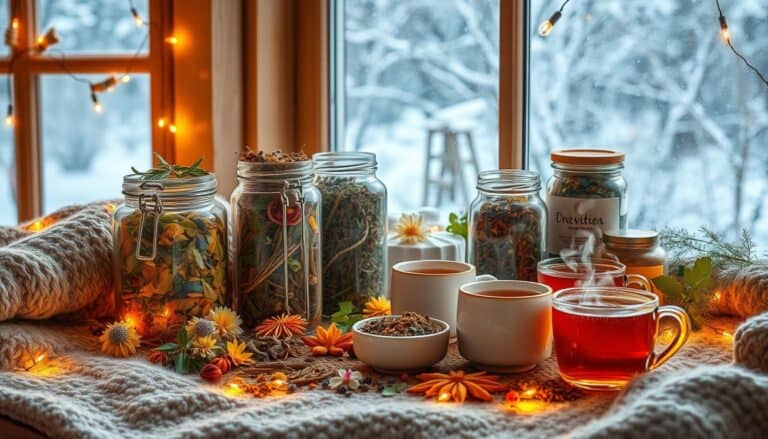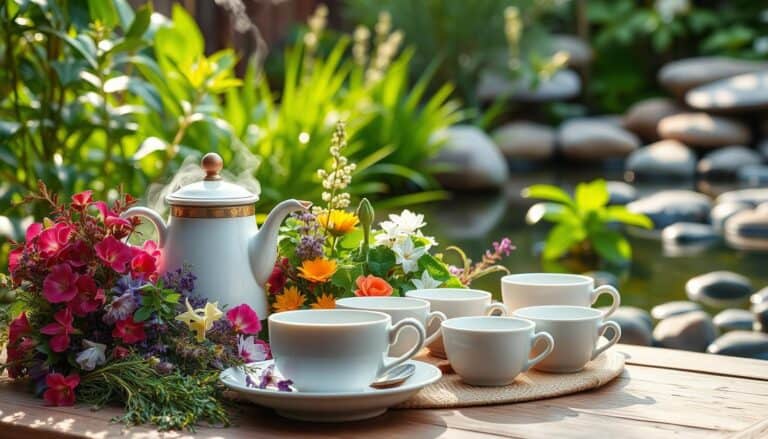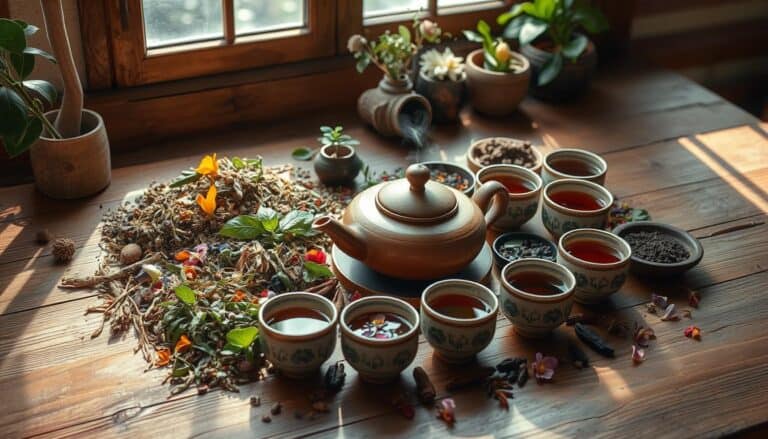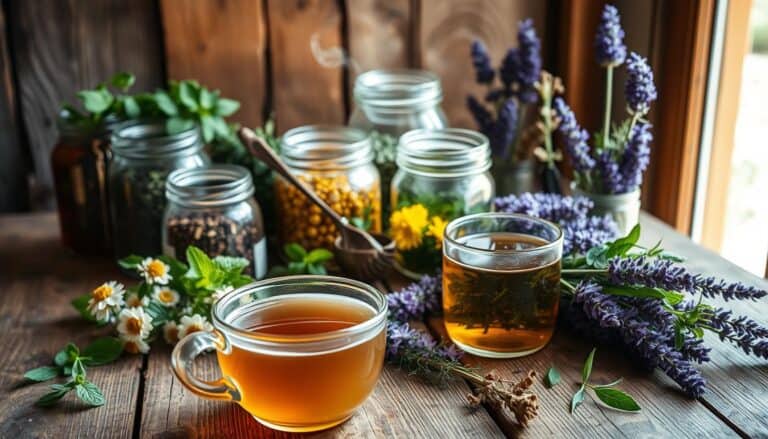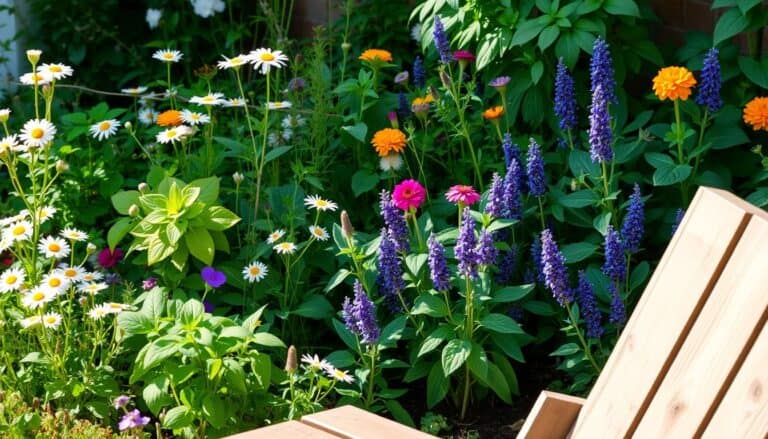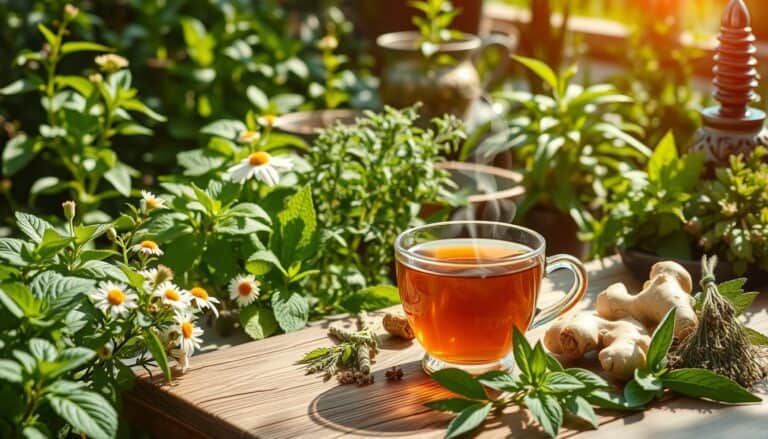7 Healing Herbal Tea Recipes for Cold and Flu Season
This post may contain affiliate links which means I may receive a commission for purchases made through links at no extra cost to you. I only recommend products I truly believe in. Thank you for your support!
As fall comes, we need to boost our immune systems against colds and flu. Nature gives us many herbal remedies to fight these illnesses. Herbal teas are especially good because they ease pain and reduce swelling.
Teas like lemon and honey, or ginger, can help with stuffy noses, sore throats, and headaches. These teas are very helpful. But, if your symptoms don’t get better or get worse, see a doctor. These teas can make your immune system stronger and help you feel better.
Benefits of Herbal Teas for Immune Support
As winter comes, herbal teas are a natural way to fight colds and flu. They are made from plants that help our immune system. These teas can also ease symptoms of colds and flu.
Why Herbal Teas are Effective for Colds
Herbal teas are great for colds because they have natural healing powers. Ingredients like ginger, peppermint, and chamomile have special compounds. These compounds can reduce inflammation, fight viruses, and boost our immune system.
Key Ingredients That Boost Immunity
- Ginger tea can ease breathing and reduce swelling.
- Echinacea tea can make our immune system stronger, helping colds and flu go away faster.
- Elderberry tea has compounds that stop cold and flu viruses from spreading.
- Turmeric tea, with its curcumin, can help with fever, pain, and congestion.
How to Prepare Herbal Teas for Maximum Benefits
To get the most from herbal teas, use fresh or high-quality herbs. Steep them for 5-10 minutes and drink them warm. Some teas, like chamomile, can be drunk 2-4 times a day. By following these steps, you can boost your immune system and fight off colds and flu.
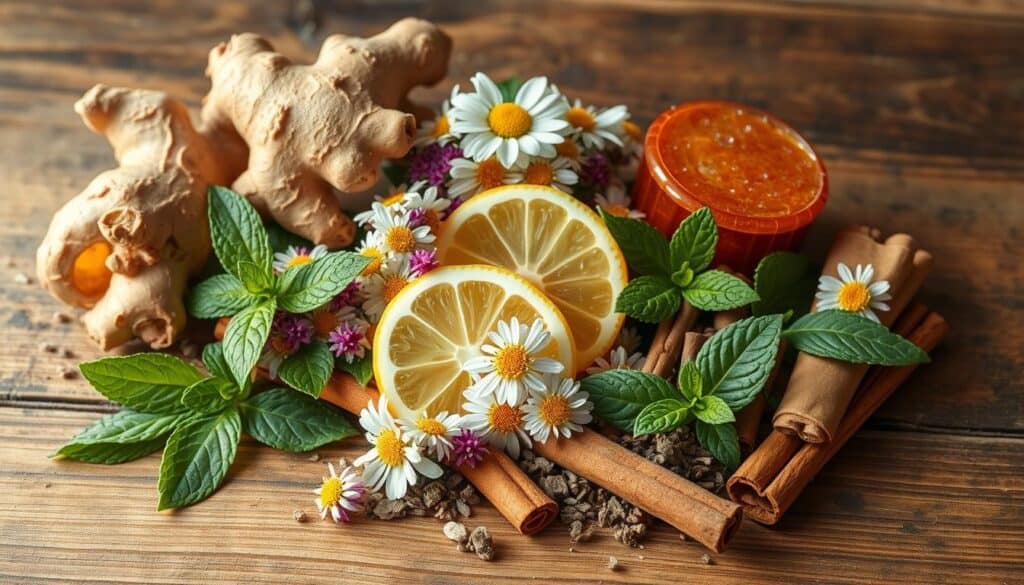
Top 7 Herbal Tea Recipes for Cold and Flu Relief
As cold and flu season comes, herbal teas are a great choice. They comfort and boost your immune system. Here are our top 7 herbal tea recipes for cold and flu relief:
Ginger and Lemon Tea
Ginger fights inflammation and viruses, while lemon boosts your immune system. Mix 1 tablespoon of fresh ginger, 1 tablespoon of honey, lemon juice, and 1 cup of boiling water. Steep for 10 minutes for a warm, refreshing tea.
Chamomile and Honey Blend
Chamomile calms and fights inflammation, perfect for sore throats and cold symptoms. Use 1 tablespoon of dried chamomile flowers and 1 cup of boiling water. Steep for 5 minutes, then add honey for a soothing drink.
Peppermint and Eucalyptus Brew
This tea combines peppermint and eucalyptus for a strong cold-fighting duo. Peppermint fights microbes, and eucalyptus clears congestion. Mix 1 tablespoon each of peppermint and eucalyptus leaves with 1 cup of boiling water. Steep for 5-10 minutes.
Turmeric and Cinnamon Elixir
Turmeric’s curcumin fights inflammation and microbes, while cinnamon adds warmth and antiviral benefits. Mix 1 teaspoon each of turmeric and cinnamon powder with 1 cup of hot water and a dash of black pepper. Steep for 10 minutes and sweeten with honey if you like.
These herbal teas offer natural cold relief and boost your immunity during flu season. Adding these teas to your routine can keep you healthy and strong all season.
Tips for Using Herbal Teas Safely and Effectively
Using herbal teas for wellness is great, but knowing how to do it right is key. It’s important to understand dosages, interactions, and safety. This way, you can enjoy the benefits without any side effects.
Recommended Dosages for Common Herbs
For the best results, follow the recommended amounts. Use 1 tablespoon of dried herbs per cup of hot water. Steep for 5-10 minutes. For example, Echinacea tea is best in 1 tablespoon per cup, up to 3 times a day. Ginger tea can be had 2-3 times a day, with 1 tablespoon of fresh ginger per cup.
Key Precautions and Allergies to Watch For
Some herbal teas might not mix well with medicines or could cause allergies. Pregnant women, people with chronic health issues, and those on prescription drugs should talk to their doctor first. Also, watch out for allergies to certain herbs, like chamomile, which can affect those sensitive to the daisy family.
Storing and Brewing Techniques for Freshness
To keep your herbal teas fresh and flavorful, store and brew them right. Keep dried herbs in airtight containers, away from light and heat. When brewing, use water just below boiling and steep for the recommended time to get the most from your herbs.
When to Consult a Healthcare Professional
Herbal teas are great for cold relief and boosting immunity, but know when to seek medical advice. If symptoms last more than a week, get worse, or come with a high fever or trouble breathing, see a doctor. They can help choose the right herbal remedies and ensure your safety.
